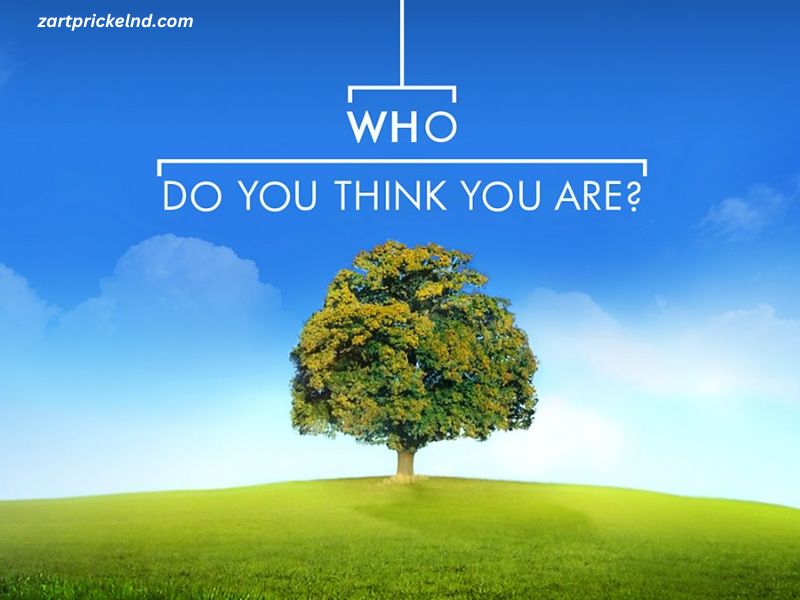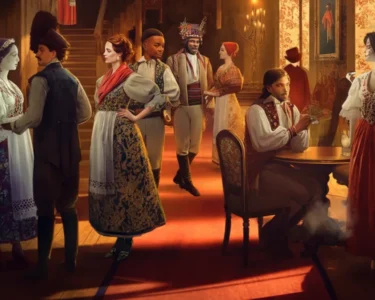The phrase “Who Do You Think You Are I Am?” has gained significant attention in popular culture, particularly within the context of professional wrestling. But its meaning and impact extend far beyond that specific arena. This iconic expression captures a moment of defiance, self-assertion, and identity — all woven into a cultural fabric that resonates with many people. Whether it’s about standing up for yourself, asserting dominance, or simply questioning one’s position in life, “Who Do You Think You Are I Am?” has evolved into a catchphrase that embodies strength, individuality, and confidence.
In this article, we’ll dive deep into the origins, significance, and broader cultural impact of the phrase “Who Do You Think You Are I Am.” We’ll also explore its relevance in different fields like wrestling, psychology, and social media. By understanding the context in which this phrase was born and how it continues to echo through modern discourse, we can appreciate the layers of meaning that make it so memorable.
The Origin of “Who Do You Think You Are I Am”
The phrase “Who Do You Think You Are I Am?” gained widespread fame after a heated moment during a professional wrestling match in 2005. It was uttered by professional wrestler Jersey Mike, also known as Jersey Mike Mizanin, during a particularly intense face-off with another wrestler. The phrase was used in response to a taunt, and it immediately captured the attention of wrestling fans for its unexpected blend of bravado and confusion.
While wrestling has always been a platform for larger-than-life personalities to emerge, this phrase broke the mold by being both confrontational and unintentionally humorous. The line quickly became a meme, spreading across social media and fan forums, where it was used in a variety of contexts.
But what made this phrase so memorable? On the surface, it seemed like an accidental slip of the tongue — a blend of two distinct phrases: “Who do you think you are?” and “I am who I am.” This strange and imperfect phrasing, however, became part of its charm. It wasn’t just the words themselves, but the feeling behind them — a statement of personal assertion that resonated with people from all walks of life.
Analyzing the Phrase: Identity and Defiance
At its core, “Who Do You Think You Are I Am?” is an exploration of identity and power dynamics. The phrase questions authority, self-image, and perception. Let’s break down its psychological and philosophical implications.
Identity and Self-Assertion
The statement begins with the phrase “Who do you think you are?” — a classic expression of challenge and defiance. It’s an attempt to reassert power or control in a situation where someone feels disrespected or underestimated. In this way, the phrase can be interpreted as a moment of self-assertion. It forces the person to confront their own position, power, or value in a given context.
The second part of the phrase, “I am,” adds another layer. It’s a direct declaration of selfhood — a simple, but powerful acknowledgment of one’s own existence, identity, and self-worth. By combining these two components, the phrase “Who Do You Think You Are I Am?” becomes a powerful declaration of personal autonomy, as though to say, “I do not need to justify myself to you.”
The Power Dynamic
In its wrestling context, the phrase is used as a tool of psychological warfare. Wrestlers use bravado and hyperbole to gain the upper hand in the minds of their opponents and fans alike. The phrase challenges the opponent by questioning their worth or authority. At the same time, it asserts the speaker’s own strength and confidence, no matter how exaggerated or irrational the claim may seem.
This is a fundamental tactic used in many power struggles. Whether in professional sports, corporate environments, or social media platforms, there is an inherent battle over status and identity. “Who Do You Think You Are I Am?” perfectly captures the essence of this struggle in a short, memorable burst of words.
“Who Do You Think You Are I Am” in Popular Culture
Over time, the phrase “Who Do You Think You Are I Am?” has made its way into various aspects of popular culture, often as a symbol of defiance or self-empowerment.
Wrestling Culture
While the phrase originated in wrestling, its impact on the sport cannot be understated. In a domain built on drama, personas, and storytelling, catchphrases like this one become shorthand for a wrestler’s character. They encapsulate everything about the persona they’ve crafted — their strength, their confidence, and their ability to dominate.
Wrestlers are known for their larger-than-life personalities, and a well-timed phrase can elevate a match to new heights. The phrase “Who Do You Think You Are I Am?” became part of this wrestling lexicon, where it took on a life of its own. Fans began shouting it in the stands, and it became a rallying cry for anyone who wanted to project dominance in their own lives.
The Memeification of the Phrase
As is the case with many popular phrases, “Who Do You Think You Are I Am?” quickly became a meme. It spread across social media platforms like Twitter, Instagram, and TikTok, where users began using it to assert themselves in playful ways. The phrase was often used ironically, as a way to mock the exaggerated bravado typically associated with wrestlers. In this way, it became not only a symbol of defiance but also of humor and self-awareness.
Self-Help and Motivation
Interestingly, the phrase also resonates with individuals seeking motivation or personal growth. The idea of asserting your worth with a simple, unapologetic statement of “I am” can be powerful. In the context of personal development, “Who Do You Think You Are I Am?” becomes a mantra for overcoming imposter syndrome, taking control of your destiny, and refusing to let others dictate your path. It serves as a reminder that, no matter the circumstances, you have the right to define who you are.
In Popular Media
Outside of wrestling, the phrase has also made appearances in popular media, further cementing its place in the cultural zeitgeist. Whether it’s in movies, television shows, or even news reports, the line continues to be used to evoke feelings of self-confidence and self-assertion.
For example, in films where characters are forced to confront their fears or face off against an opponent, lines like “Who Do You Think You Are I Am?” often serve as a turning point — a moment when a character finds the strength to stand up for themselves, take charge, and push forward.
The Cultural Impact of “Who Do You Think You Are I Am”
The widespread use of “Who Do You Think You Are I Am?” is a reflection of a larger cultural shift toward individualism and self-expression. Today, we live in an era where people are increasingly encouraged to assert their worth and pursue their own goals. Social media platforms provide individuals with a space to project their identities and challenge societal norms.
In this environment, phrases like “Who Do You Think You Are I Am?” have found a natural home. They tap into the desire to be seen and heard in a world that often feels overwhelming or dismissive. Whether it’s in the realm of professional sports, self-help, or social media, the phrase represents a rejection of passivity and an embrace of personal agency.
Resilience and Empowerment
The phrase also speaks to resilience. In a time when many people feel pressure to conform to societal expectations, the words “Who Do You Think You Are I Am?” serve as a defiant rejection of limitations. It’s a call to embrace your true self and stand tall, regardless of how others perceive you. It’s about owning your identity and refusing to be diminished by external judgments.
The Enduring Legacy of the Phrase
Even as new phrases and memes rise to prominence, “Who Do You Think You Are I Am?” continues to endure. Its simple yet powerful message, coupled with its connection to the world of professional wrestling and popular culture, ensures its place in the lexicon of defiance, self-worth, and identity.
For years to come, people will continue to use this phrase as a reminder of their own strength and autonomy. Whether on the wrestling mat or in everyday life, “Who Do You Think You Are I Am?” will remain a beacon of self-empowerment and a symbol of the power that comes from knowing who you are.
Conclusion
“Who Do You Think You Are I Am?” may have started as a humorous slip of the tongue in the world of professional wrestling, but its resonance has transcended its origins. Today, it is a phrase that speaks to the complexities of identity, power, and self-assertion. It serves as a reminder that we all have the right to define who we are, no matter what others may think or say.
Whether used in jest, as part of a self-help mantra, or simply as a catchphrase among friends, “Who Do You Think You Are I Am?” captures the essence of individual strength. It speaks to the heart of human experience — our desire to be seen, heard, and respected. And, perhaps most importantly, it reminds us to never back down when it comes to asserting our place in the world.
By exploring the meaning and impact of this phrase, we can understand why it continues to hold such a powerful place in popular culture. From wrestling rings to the halls of social media, “Who Do You Think You Are I Am?” will continue to echo as a symbol of self-empowerment for years to come.



